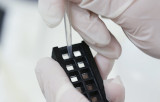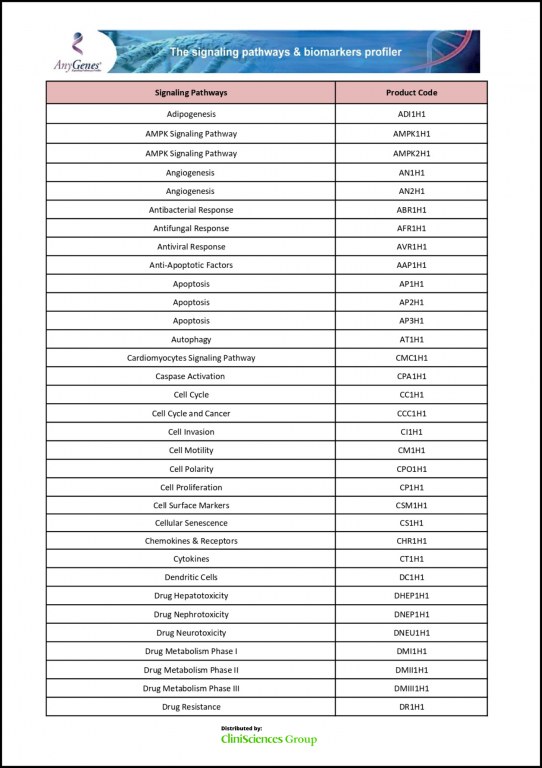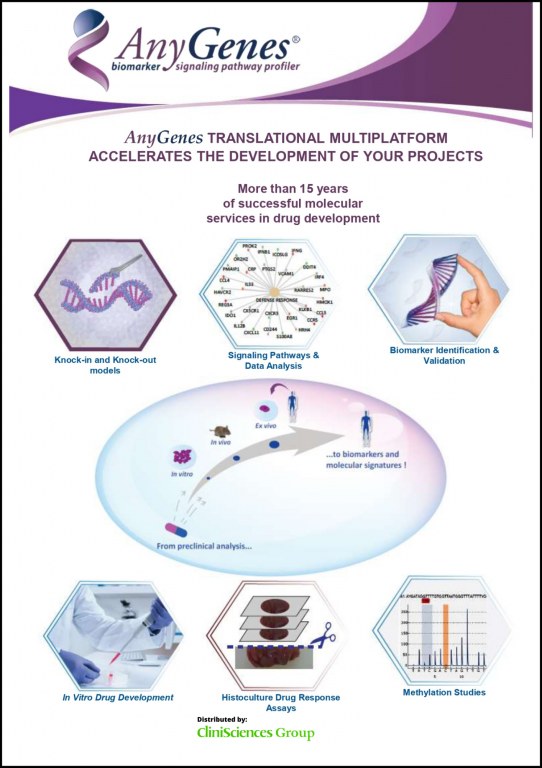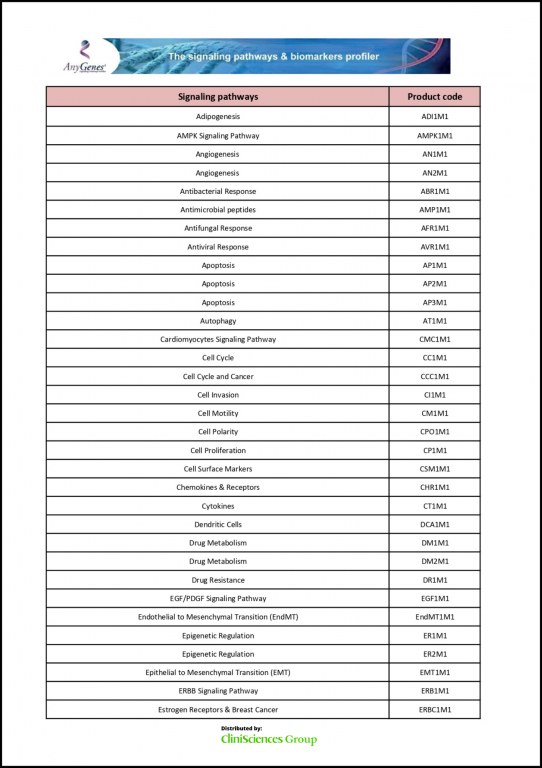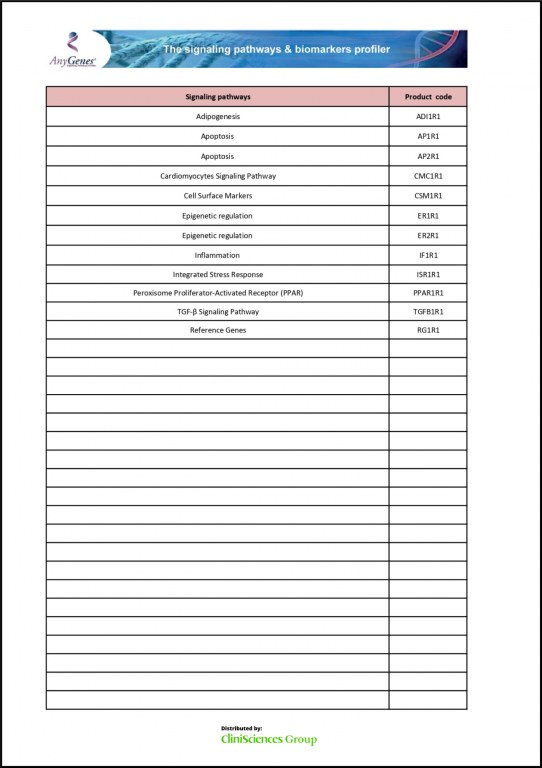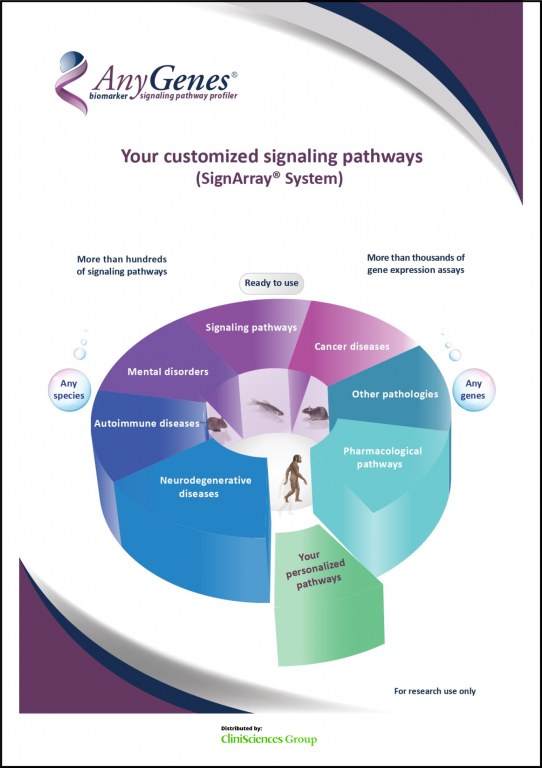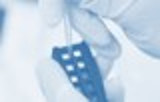AnyGenes
 |
Sito internet:http://www.anygenes.com |
||||||||||||||||||||||||||||||||||
Con oltre vent'anni di esperienza nell'analisi del genoma, gli scienziati di AnyGenes® forniscono strumenti altamente sensibili e specifici per l'analisi delle cascate di segnalazione, l'identificazione e la validazione dei biomarcatori. Questi strumenti consentono di risparmiare tempo e denaro e di accelerare le scoperte e le pubblicazioni.
AnyGenes® offre un'ampia gamma di SignArrays® (array qPCR) con l'obiettivo di coprire le intere cascate di segnalazione del trascrittoma (umano, murino...), attraverso prodotti specifici dei processi cellulari (angiogenesi, apoptosi, ...) ma anche malattie autoimmuni o neurodegenerative, ...
AnyGenes® offre una soluzione pronta all'uso che comprende:
- Il sistema SignArrays® in formato 96 o 384, compatibile con la qPCR automatizzata.
- reagenti associati (Perfect Master Mix AnyGenes ®)
- Software di analisi intuitivo e completo (in download gratuito)
Sito web: www.anygenes.com
| |||||||||||||||||||||||||||||||||||
